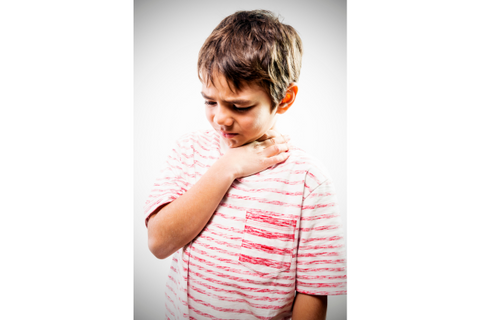With the weather becoming a little chillier, its almost time for the dreaded cold and flu season. Starting as early as October and lasting right through till March, making sure your prepared at home is crucial for both your kids health and yours to. Often seeming like an impossible task to keep your little ones healthy all the time, kids getting sick is inevitable.
In this blog post we go over ways to prevent sickness before anyone catches it, as well as what to do if a member of your family does fall ill. We understand the strain it can put on you parents, when your little one isn’t able to attend school or day-care due to being under the weather; so lets take a look at what we can do to make it easier for everyone involved.
Preventing Being Ill
Hygiene
It may not come as a surprise, but the first step to preventing illness during the colder months is to teach and encourage good hygiene. This consists of regular hand washing, multiple times during the day and especially before eating a meal. The use of hand sanitiser is recommended, teaching your child to sneeze or cough into either a tissue on hand, or their bent elbow instead of straight into their hands. This will help prevent the spread of germs.

Encouragement is key, so try not to punish poor hygiene but instead reward good hygiene. Its also a good idea to provide the things needed for good hygiene within easy reach of your children (depending on age) like tissues and hand sanitizer and supervise just in case.
Flu Shots
The flu vaccine can be given to anyone who is over 6 months old, with some treatments being in the form of nasal sprays, which with the common fear of needles and pain is quite useful when your kids get theirs!

For the little ones who are receiving the jab, to try to prevent any commotion it is best to give them a distraction so that they don’t realise that they have been jabbed. This is more effective than you might think!
Keep active
It is crucial that kids get plenty of exercise, in moderation, as it can help boost their immune systems. General daily exercise like running around, going on bike rides and jumping rope are all great ways to ensure your child is not only having fun but also helping themselves prevent illness more often!

Exercise is not just limited to outdoors, so if you feel as if your child is not getting the exercise they need, you can always look for indoor alternatives!
Must-have items
In order to help prevent an illness from becoming worse, or to catch it in the early symptom stages, there are some things you will definitely want to have on hand to make your life much easier. Here are a few things we have come up with which will make being ill a little more bearable.
A working thermometer

There are plenty of different thermometers so make sure to pick one you and your child are comfortable using. These are important as a fever can be a sign that your little one’s immune system is trying to fight of an infection. If your child is younger than 3 months old, with a rectal temperature of 38°C, or if your child is older than 3 months and has a temperature of 39°C then you should call or take them to a doctor.
Sore throat tips/remedies

Warm liquids such as caffeine free tea for young ones, or warm water with lemon and/or honey can all help in reducing a sore throat and loosen mucus causing blocked and runny noses. The steam and vapours from a warm bath can also help with loosening mucus, making it easier to breathe and just a bit more bearable for your little one.
Hand sanitiser and cleaning products
As we mentioned earlier, good hygiene is a must. Anti-bacterial hand soap, hand sanitizer and anti-bacterial surface cleaner will all help in reducing the likelihood of cold/flu carrying germs from being able to make their way into your home or infect you and your kids.

Make sure that your children (assuming they are old and responsible enough) have a little travel bottle of hand sanitizer for school and other outdoor activities where its harder to stay hygienic. Encourage washing hands before food and so on.
Fever-reducing medicine
Calpol and other Child Paracetamols and Ibuprofens can help with bringing down a fever. This will not treat the cause of the problem, but it will provide quick relief for your little one.

Just remember to check the following: expiration date, dosage for age, don’t give to children under 6 months old, and for fever in babies under 3 months, contact your health care provider.
We hope this has helped in giving you ideas for preparing for the cold and flu season. For more information on the matter, we recommend visiting the NHS Government website as they are best equipped to answer any questions you may have. You can also always look for help from pharmacists, your GP and NHS 111.
A good page to visit on the NHS website is their Staying Well in the Winter.


